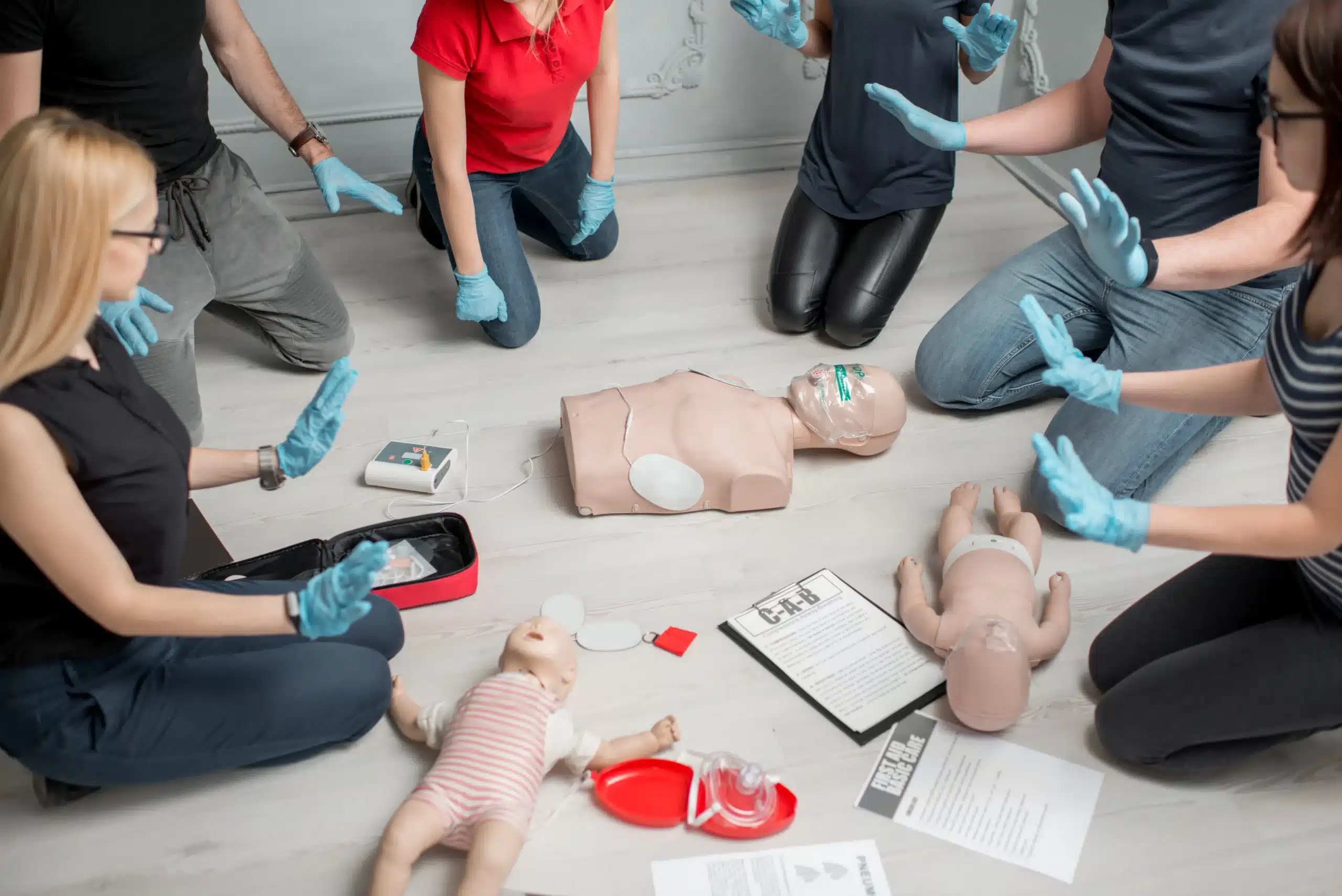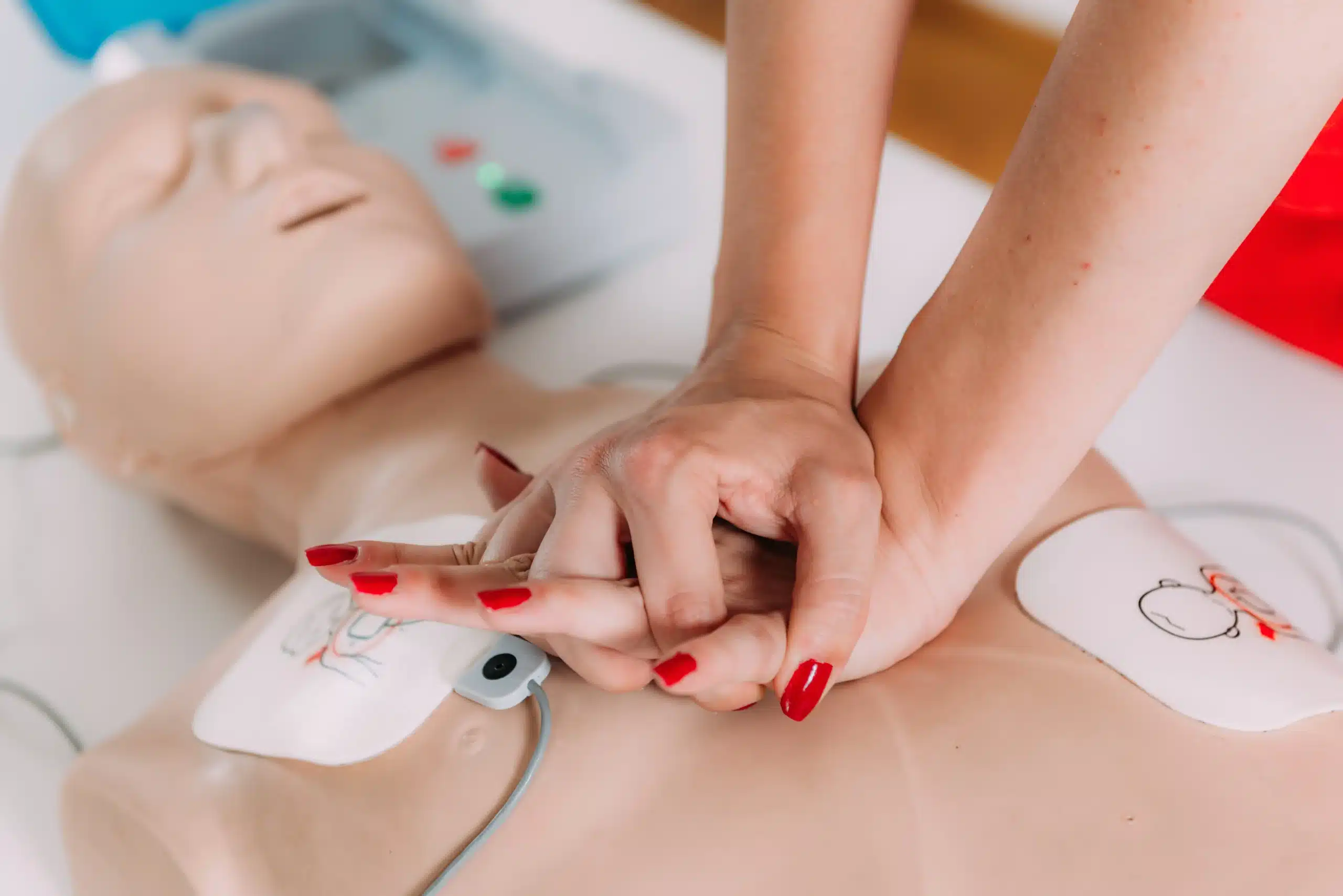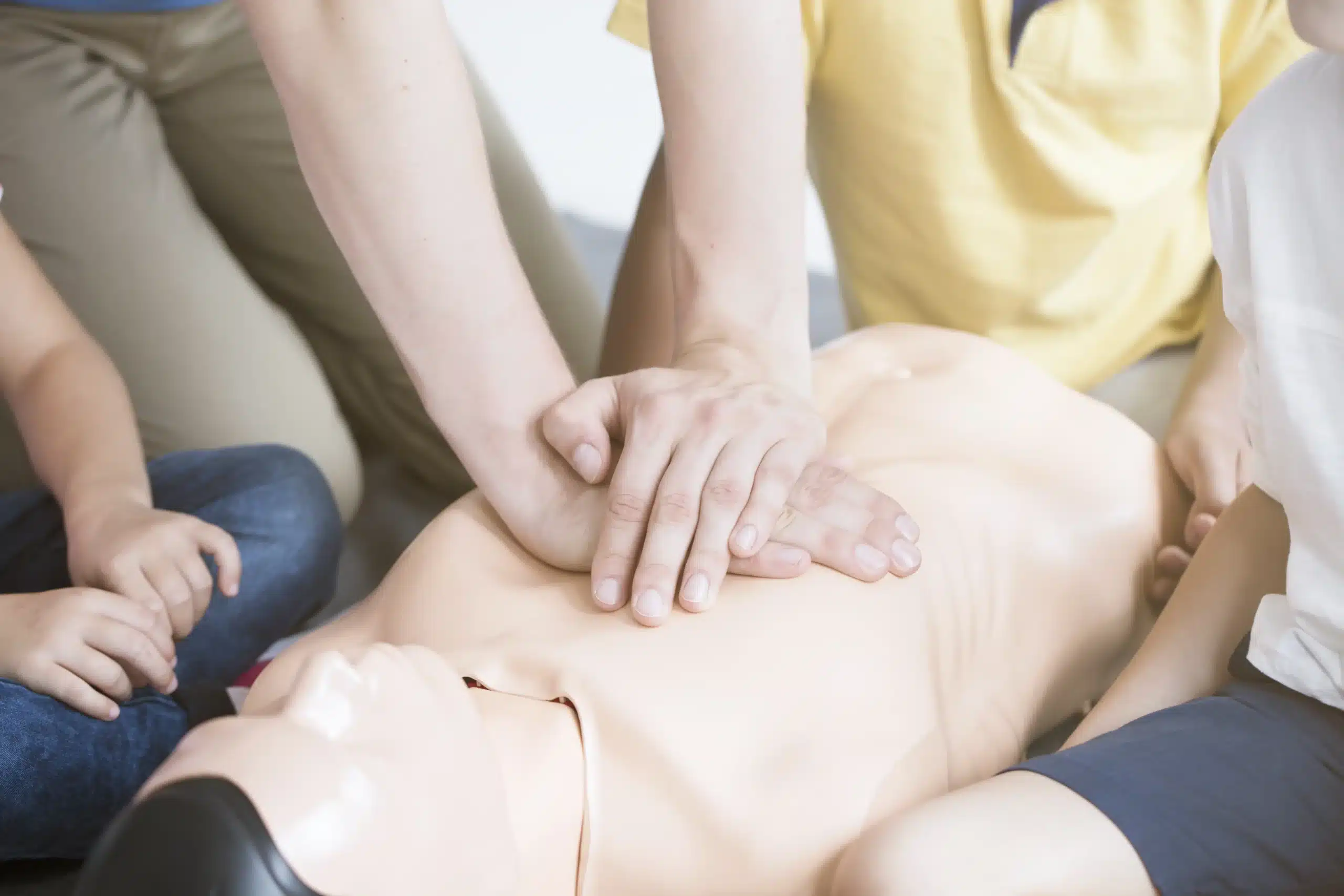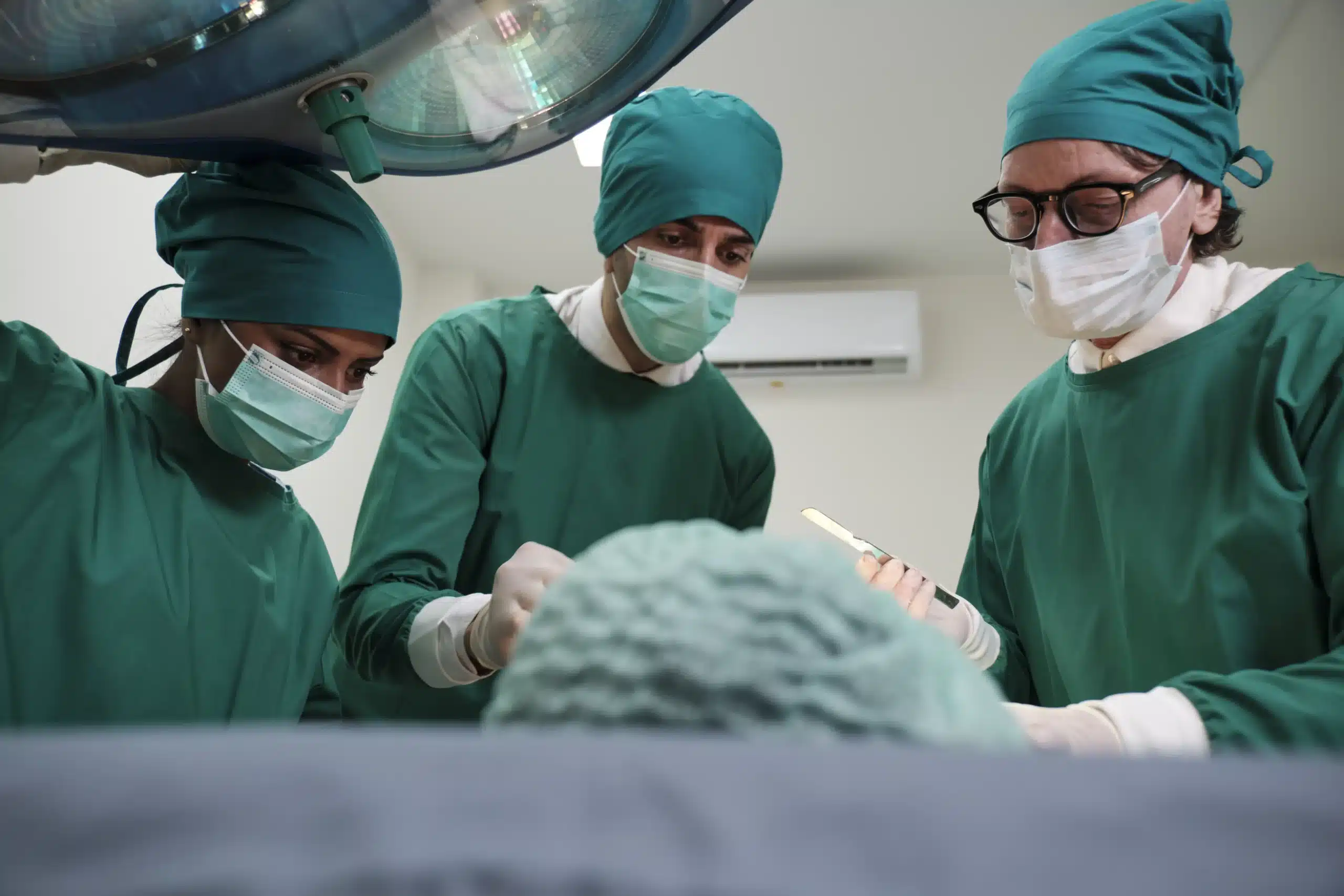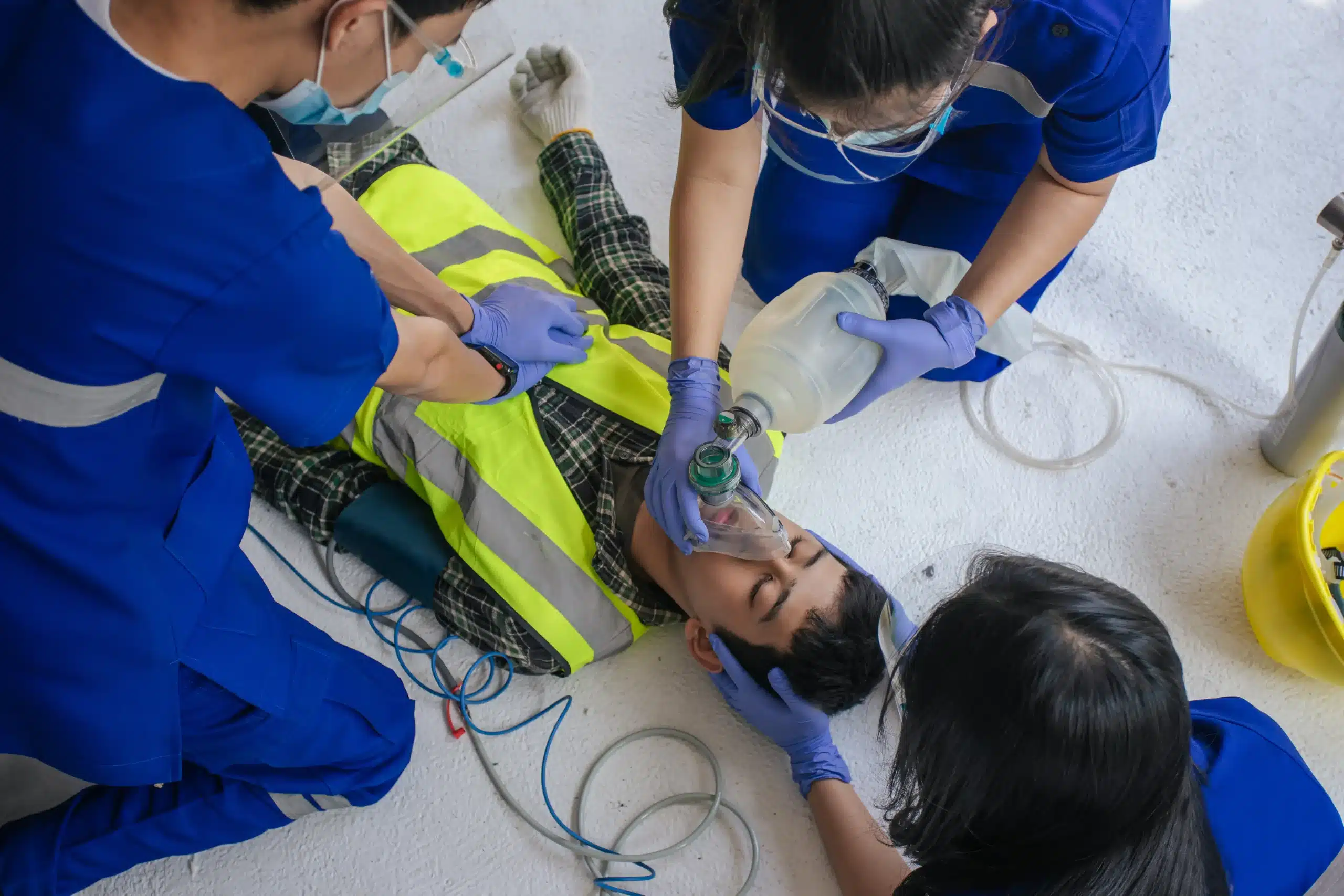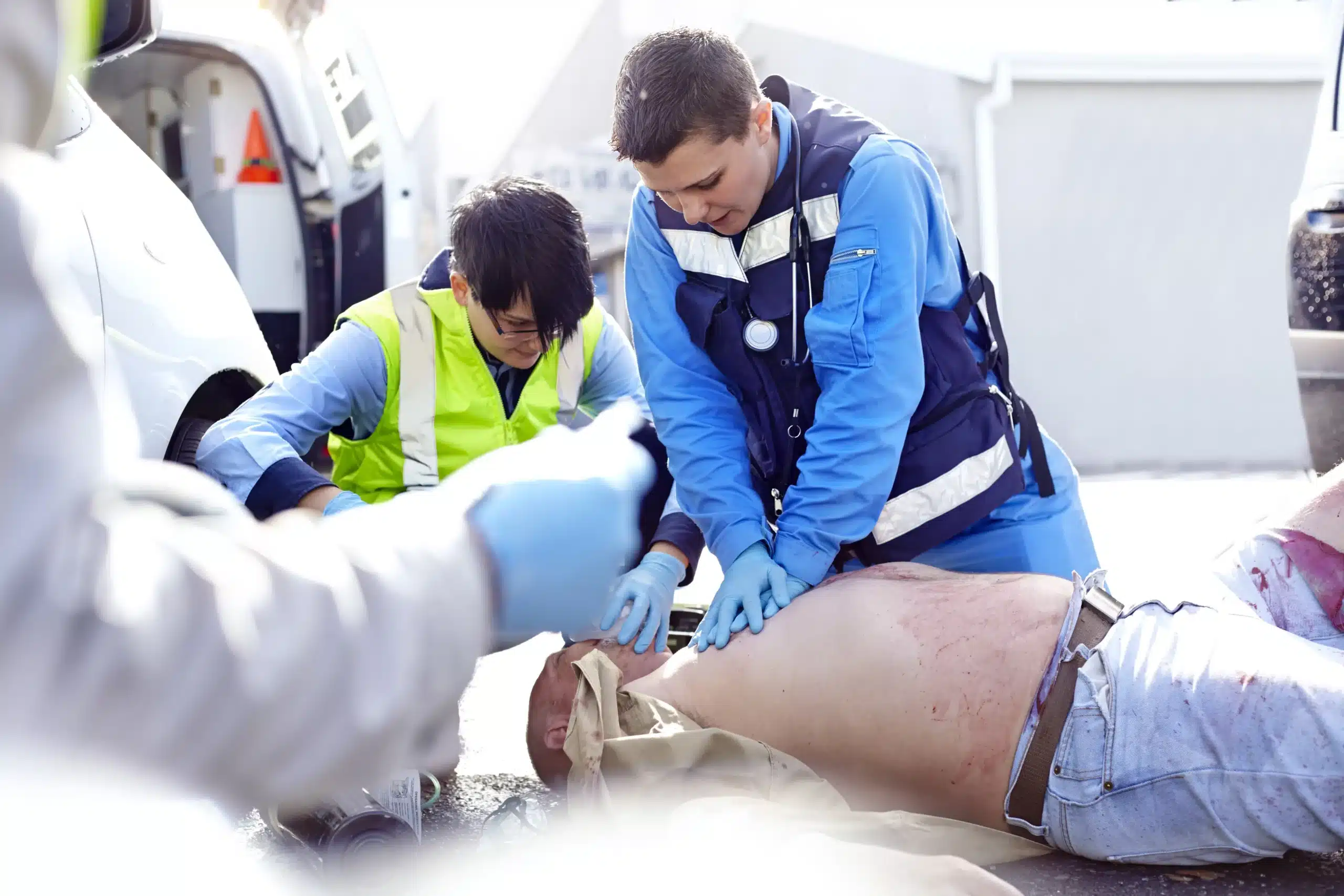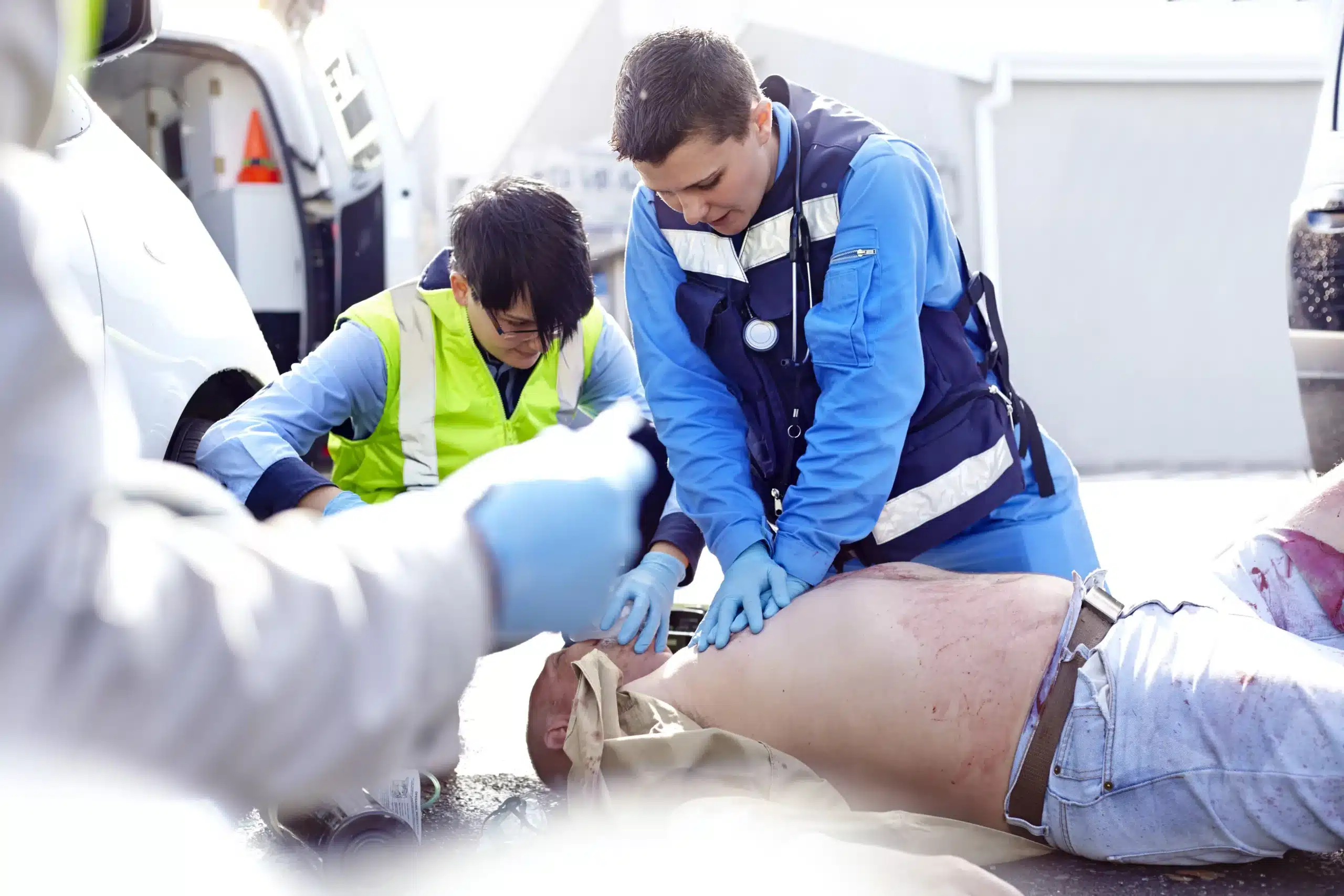Working in healthcare means constantly learning and adapting. Basic Life Support (BLS) skills are a cornerstone of patient care, and keeping those skills sharp is a must. But let’s face it, finding the time for recertification can be a challenge. If you’re searching for “bls recertification near me,” you’re in the right place. This guide simplifies the process, providing clear, actionable steps to help you find the right course, prepare effectively, and successfully renew your certification. We’ll cover everything from understanding the latest guidelines to managing test anxiety, so you can approach your recertification with confidence and ease.
Key Takeaways
- Maintain your life-saving skills: Regular BLS recertification ensures you’re prepared to handle emergencies effectively with the most current techniques.
- Choose the right course: Consider factors like learning style, schedule, and budget when selecting a BLS recertification provider. Look for accredited providers with experienced instructors.
- Prepare for success: Review the latest AHA guidelines, practice your skills, and manage any test anxiety to make your recertification experience smooth and successful.
What is BLS Recertification?
What is BLS & Why Recertify?
Basic Life Support (BLS) certification equips healthcare providers, and other professionals, with the skills to respond to life-threatening emergencies. It covers essential techniques like CPR, recognizing and responding to cardiac arrest, and using an AED. Many misunderstandings exist about BLS certification, so it’s helpful to get the facts. BLS certification from the American Heart Association typically expires every two years. Renewal can often occur up to 30 days after the expiration date, but it’s always best to confirm with your certifying organization for specific guidelines. Recertification ensures your skills are current and you’re prepared to provide effective care when it matters most.
Why Stay Current with BLS Skills?
Staying up-to-date with the latest BLS guidelines and techniques is crucial for several reasons. Medical knowledge and best practices are constantly evolving. Recertification ensures you’re familiar with any changes in guidelines and procedures, which can be a significant challenge. Regular practice and refresher courses reinforce your skills and build confidence, allowing you to respond effectively under pressure. This preparation helps you provide the best possible care during emergencies. Staying current also demonstrates your commitment to professional development and patient safety.
Find BLS Recertification Courses Near You
Where to Find Local BLS Recertification
To keep your Basic Life Support (BLS) skills sharp, you’ll need to recertify. The American Red Cross offers BLS renewal and recertification courses designed for healthcare providers. These courses cover the latest techniques and ensure your certification stays current. It’s important to renew before your current BLS certification expires to avoid any gaps in your qualifications.
How to Find Nearby Courses Online
Finding a convenient BLS recertification course is easy. The Red Cross website has a search tool to locate classes in your area. They also offer online training, a great option for busy schedules. If your certification has lapsed, you might need to take a full BLS course rather than a refresher. For more information on costs, this article breaks down what you need to know about BLS recertification expenses.
Hayward CPR Classes: Your Local AHA Training Center
If you’re in Hayward, Union City, or San Leandro, California, Hayward CPR Classes offers various American Heart Association certification courses, including BLS, ACLS, and PALS. As a woman-owned AHA Training Center, they provide daily classes with hands-on training and convenient scheduling. They also offer group discounts, making it a cost-effective choice for workplaces or groups. For those needing other certifications, check out their RQI classes.
Compare BLS Recertification Options
In-Person, Online, or Hybrid?
When choosing a BLS recertification course, the first step is to pick a format. In-person classes offer hands-on training and direct interaction with an instructor. This format works well for people who learn best in a traditional classroom setting and value face-to-face instruction. Online courses provide flexibility and convenience, allowing you to renew your certification from anywhere with an internet connection. This can be a great option for busy professionals or those with limited access to in-person training centers. Some providers, like Save A Life CPR, even offer a hybrid approach, combining online learning with in-person skills practice. Consider your learning style, schedule, and access to resources when making your decision. The Red Cross is another organization that offers both in-person and online BLS renewal options.
Course Format & Duration
BLS recertification courses vary in length, depending on the provider and format. Online courses can often be completed more quickly, sometimes in under an hour, focusing primarily on the cognitive aspects of BLS. In-person classes typically run longer, often around three hours, to accommodate hands-on practice and demonstrations. Many courses, such as those offered by CPR Certification Brooklyn, incorporate a mix of learning methods, including video instruction, quizzes, and hands-on scenarios. This variety helps reinforce key concepts and ensures you’re prepared for real-world emergencies.
Cost & Discounts
The cost of BLS recertification varies depending on the training center, course format, and included materials. While cost is a factor, remember that maintaining your certification is an investment in your career and the safety of those around you. The National CPR Foundation offers an affordable option, only charging a fee after you pass the exam. Look for providers, like Hayward CPR Classes, that offer discounts, especially for group registrations. American Health Training highlights how the long-term benefits of BLS certification outweigh the initial expense. Also, check for discounts on training materials, like those sometimes offered by the Red Cross, to make your recertification more cost-effective.
What to Expect During BLS Recertification
Getting ready for your BLS recertification? Here’s a look at what you’ll cover and how to prepare.
Skills & Techniques Covered
BLS recertification covers core life-saving skills. You’ll review how to use an automated external defibrillator (AED), basic airway management techniques, and how to help someone who is choking. These skills are crucial for responding to emergencies effectively, so the course makes sure you’re up to date on the latest guidelines. It’s a good idea to brush up on these essential skills before class.
Assessment & Certification
Most BLS recertification courses involve an assessment to confirm your skills. Once you complete the course, you’ll typically receive a temporary wallet card right away. Your permanent certification card will arrive by mail within a few business days. If your recertification requires an in-person skills check, be sure to schedule it promptly to avoid unnecessary delays. Your BLS certification is valid for two years, so mark your calendar to stay on top of your renewal. The National CPR Foundation offers more information on BLS renewal and recertification.
Hands-on Practice
Hands-on practice is key to mastering BLS skills. In-person classes offer the best opportunity for this, allowing you to perform the techniques and get feedback from certified instructors. Regular practice and refresher courses are essential for maintaining your proficiency and ensuring you’re prepared for any emergency. Check out these helpful BLS renewal tips to avoid common errors. Remember to keep your certification documentation organized and accessible.
Choose the Right BLS Recertification Provider
Picking the right BLS recertification provider is key to a smooth and valuable learning experience. Here’s what to consider:
Accreditation & Certification Validity
First things first, confirm the provider is accredited by a recognized organization like the American Heart Association (AHA). This ensures your certification will be valid and accepted wherever you work. Don’t let cost be a perceived barrier—BLS certification is an investment in your career and the ability to provide crucial care. AHA BLS Certification is often more affordable than you think, especially considering its long-term benefits. Check with your employer; they may even cover the cost.
Instructor Qualifications & Experience
Experienced instructors make all the difference. Look for providers with instructors who are not only certified but also have a strong background in healthcare. Their real-world insights and practical tips can significantly enhance your learning. A good instructor can help you stay updated on the latest guidelines and best practices, which is crucial for effective BLS.
Scheduling & Location Flexibility
Life gets busy, so finding a course that fits your schedule is essential. Look for providers offering various class times and formats, including weekend and evening options. Online or hybrid courses can offer even greater flexibility if in-person classes are difficult to attend. Consider potential scheduling conflicts to avoid missing your recertification deadline. Contact us to discuss your scheduling needs and explore available options.
Reviews & Testimonials
What are other healthcare providers saying? Reading reviews and testimonials can give you valuable insights into the quality of instruction, course materials, and overall experience. Positive feedback from past participants can give you confidence that you’re choosing a reputable provider. Hayward CPR Classes welcomes your questions—reach out to learn more about our courses. We’re always happy to help!
Overcome BLS Recertification Challenges
Let’s be honest: recertification can feel like a hurdle, even if you’re a seasoned pro. Between juggling work, family, and everything else, adding another “to-do” can be stressful. But staying current with your BLS skills is crucial for providing the best possible care, so let’s break down how to make this process smoother.
Manage Test Anxiety
It’s perfectly normal to feel some test anxiety, especially if it’s been a while since your last certification. One of the best ways to combat those nerves is through preparation. Review the BLS course materials beforehand and take advantage of practice tests or quizzes if they’re available. Visualizing yourself successfully completing the recertification can also help ease anxiety. Remember, the goal is to refresh your skills and ensure you’re confident in your abilities.
Stay Updated on Guidelines
BLS guidelines are regularly updated to reflect the latest research and best practices in cardiovascular care. Don’t let these updates catch you off guard. Before your recertification, take some time to review the current American Heart Association guidelines. Knowing what’s changed will not only help you on the test but also ensure you’re providing the most effective care. Hayward CPR Classes follows the most up-to-date guidelines, so you can rest assured you’re learning the latest techniques. Contact us to learn more about our group discounts.
Balance Recertification with Your Schedule
Finding the time for recertification can be tricky, but it’s definitely manageable with a little planning. Think about your current schedule and identify any potential time slots. Hayward CPR Classes offers a variety of class times and formats, including evening and weekend options, to accommodate busy schedules. Consider whether an in-person class, a blended learning approach, or even a completely online option works best for you. Once you find a format and time that fits, mark it on your calendar and treat it like any other important appointment.
Prepare for Your BLS Recertification
Getting ready for your BLS recertification doesn’t have to be stressful. With a little planning and the right resources, you can walk into your recertification course feeling confident and prepared. Here’s how to get ready:
Pre-Course Materials & Study Resources
One of the biggest hurdles people face with BLS recertification is staying up-to-date with the latest guidelines. These guidelines can change, so it’s important to review them before your course. You might be surprised by updates if you haven’t looked at the material recently. Another challenge is the cost of recertification. Check with your employer or professional organization to see if they offer financial assistance for BLS recertification. Many providers, including Hayward CPR Classes, offer discounts for group classes, which can be a great way to save money. Before your class, see if your chosen provider offers any pre-course materials or practice tests. Reviewing these can refresh your knowledge and pinpoint any areas where you might need extra practice. For top-notch BLS training and recertification, consider Hayward CPR Classes.
What to Bring to In-Person Classes
For in-person BLS recertification, come prepared with a few essentials. Bring a government-issued photo ID to verify your identity. A notebook and pen are helpful for taking notes during the course. Dress comfortably, as you’ll be participating in hands-on skills practice. Finally, bring your current BLS provider card to confirm your previous certification. Following these simple steps can help optimize your training experience and maintain your proficiency in life-saving techniques. If you have any questions about what to expect, don’t hesitate to contact us. We’re always happy to help!
Recertification Success Tips
Want to ace your BLS recertification? Regularly practicing your skills is key. Hands-on experience is the best way to build muscle memory and confidence. Consider attending refresher courses like RQI classes or practicing with a colleague to stay sharp. Also, make sure you understand any changes in protocols or procedures since your last certification. Keeping your BLS skills current is essential for providing effective emergency cardiovascular care. Staying updated with the latest guidelines, practicing your skills, and understanding changes in protocols are all essential for successful BLS renewal. If you’re looking for high-quality, affordable BLS recertification in Hayward, Union City, or San Leandro, Hayward CPR Classes offers a variety of courses to fit your schedule. We are a woman-owned AHA Training Center committed to providing comprehensive and convenient training options.
Related Articles
- BLS Renewal in Hayward: Your Easy Guide – Hayward CPR Classes
- BLS for Healthcare Providers in Union City: A Guide – Hayward CPR Classes
- BLS Certification in Hayward: Everything You Need to Know – Hayward CPR Classes
- BLS Courses in Union City: What to Know – Hayward CPR Classes
- BLS Courses in San Leandro: Your Complete Guide – Hayward CPR Classes
Frequently Asked Questions
How often do I need to recertify my BLS certification? American Heart Association BLS certification is typically valid for two years. It’s best to check with your certifying organization or employer for specific requirements, as some organizations may require more frequent renewal. Plan to recertify before your current certification expires to avoid any gaps in your qualifications.
What’s the difference between BLS certification and recertification? Initial BLS certification involves a comprehensive course covering all the fundamental skills and knowledge. Recertification, on the other hand, is a shorter course designed to refresh your existing skills and update you on any changes in guidelines. If your certification has expired, you’ll likely need to take the full certification course again.
Can I recertify my BLS online? Yes, many organizations offer online BLS recertification courses. These courses provide flexibility and convenience, allowing you to renew your certification from anywhere with an internet connection. However, some online courses may require an in-person skills assessment component. Make sure the online course you choose meets the requirements of your employer or certifying organization.
What if my BLS certification has already expired? If your BLS certification has lapsed, you’ll likely need to retake the full certification course rather than a recertification course. Contact your certifying organization or employer to confirm their specific requirements. It’s always best to renew your certification before it expires to avoid any lapse in your credentials.
How can I find BLS recertification courses near me? Several resources can help you find local BLS recertification courses. The American Heart Association and the American Red Cross websites have search tools to locate certified training centers in your area. You can also search online for “BLS recertification near me” to find local providers. When choosing a provider, ensure they are accredited by a recognized organization and that their instructors are qualified and experienced.
